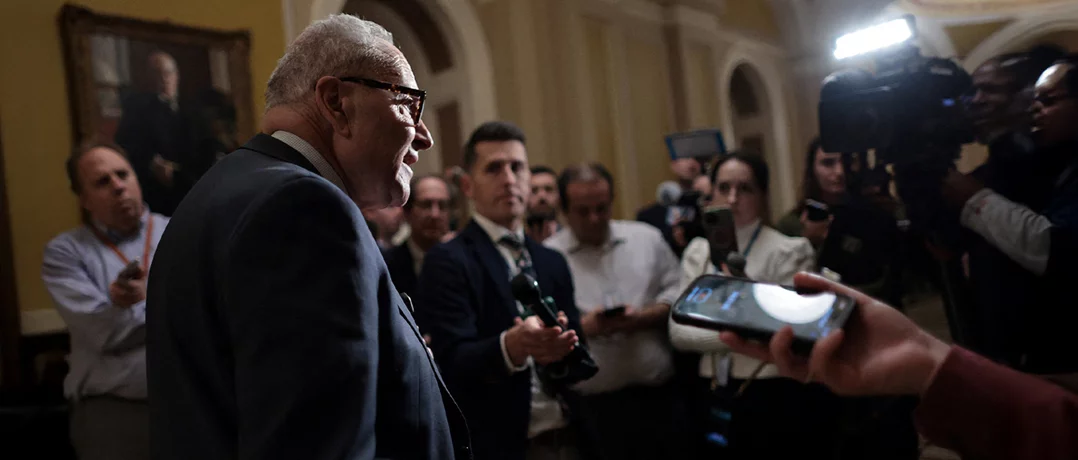The Senate greenlights the release of Jeffrey Epstein files after Trump’s surprising support, sparking scrutiny over transparency and motives.
Washington authorizes full disclosure in the Epstein case
Washington authorizes full disclosure in the Epstein case


On November 18, 2025, the United States Senate approved a bill passed by the House of Representatives that orders the release of federal files related to Jeffrey Epstein, the businessman convicted of being involved in a vast sex trafficking network that triggered one of the biggest scandals in the country.
In a striking turn of events, former President Donald Trump, who once dismissed the Jeffrey Epstein scandal as a “Democrat hoax,” had recently called on House Republicans to vote for the release of Epstein-related government files.
This sharp pivot comes amid mounting pressure from both sides of the aisle, and has prompted questions about his motivations and the stakes involved. At the same time, one lone congressman broke rank to vote against the transparency push.
However, since the bill still allows redactions to protect sensitive identities, there is uncertainty about how revealing the final disclosures will be.
Trump’s U-turn on Epstein transparency
For months, Trump resisted demands for full disclosure. He repeatedly downplayed Epstein as a marginal figure, calling the push to make his files public “pretty boring stuff” and framing it as politically motivated. He also claimed that much of the controversy was manufactured by his Democratic opponents.
But on November 16, 2025, he abruptly changed course. In a post on Truth Social, Trump urged House Republicans to support a bill that would compel the Department of Justice to release all unclassified investigative files related to Epstein; declaring, “we have nothing to hide.”
The shift followed a successful effort by lawmakers to force a floor vote. On November 12, 2025, a discharge petition secured the 218 signatures needed to bypass House leadership.
The White House defended the reversal by arguing that “President Trump has been consistently calling for transparency related to the Epstein files for years, by releasing tens of thousands of pages of documents, cooperating with the House Oversight Committee’s subpoena request,” and calling for investigations into “Epstein’s Democrat friends”.
Yet critics point to an uneasy subtext. Epstein and Trump moved in overlapping social circles in the 1990s, they were even photographed together at Mar-a-Lago (Trump’s private club in Palm Beach, Florida), and questions remain about whether Trump’s reversal is genuine, or a tactical retreat in the face of political momentum.
Clay Higgins: The lone “no” vote
When the House voted on November 18, 2025, an overwhelming 427 representatives supported the Epstein Files Transparency Act. Only Republican Rep. Clay Higgins of Louisiana dissented. His “no” vote stood out starkly in a nearly unanimous bipartisan consensus.
Higgins, a conservative and long-time Trump ally, explained that his opposition was rooted in principle. He argued that “I have been a principled ‘NO’ on this bill from the beginning. What was wrong with the bill three months ago is still wrong today. It abandons 250 years of criminal justice procedure in America. As written, this bill reveals and injures thousands of innocent people – witnesses, people who provided alibis, family members, etc.”
He claimed that “if enacted in its current form, this type of broad reveal of criminal investigative files, released to a rabid media, will absolutely result in innocent people being hurt. Not by my vote.”
He also offered a conditional caveat, stating that “the Senate amends the bill to properly address [the] privacy of victims and other Americans, who are named but not criminally implicated, then I will vote for that bill when it comes back to the House.”
However, the Senate passed the bill without changes, leaving Higgins alone with his dissent.
What is next and why it is Significant
The House’s overwhelming vote sets the stage for a historic release of Epstein-related documents, potentially lifting the veil on years of secrecy. As the bill heads to the Senate, public interest remains intense: survivors of Epstein’s abuse, advocacy groups, and watchdogs are calling it a critical step toward justice.
Trump’s reversal, however, continues to provoke skepticism. Was this move a strategic retreat in the face of political headwinds? Or does it signal a more genuine commitment to transparency, even about one of the darkest shadows in his social history?
Most importantly, what will the Epstein files reveal? And what shocking and unexpected names could be included in one of America’s most controversial and influential cases in history?


